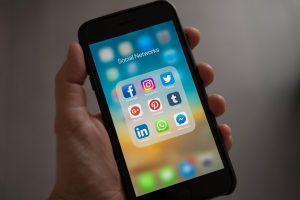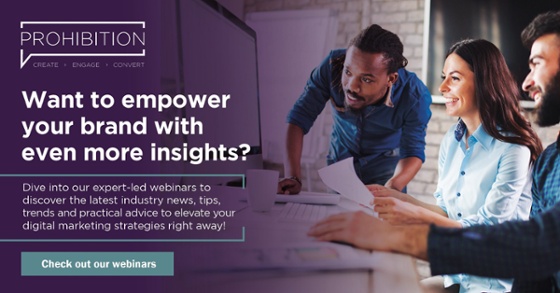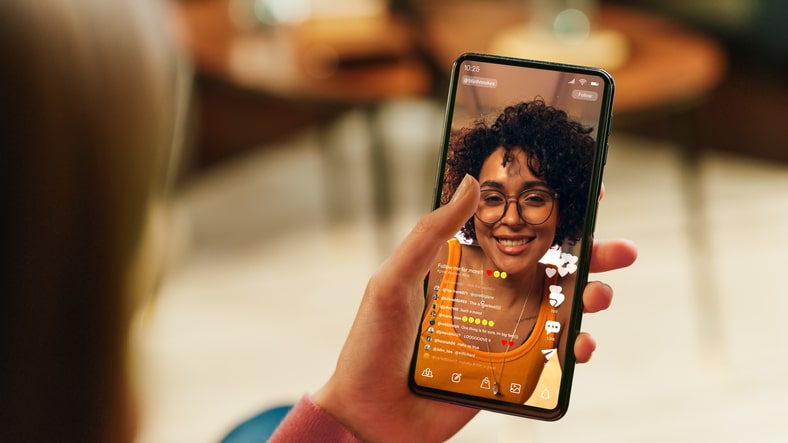
When it comes to social media marketing, many don’t realise the true potential utilising this communications channel for B2B and corporate companies can have. However, whilst channels such as Instagram and Facebook may be synonymous with consumer-facing brands and influencers, the power of social media marketing for B2B brands should not be underestimated.
Not convinced…? To get you on-board here are some statistics that are guaranteed to blow your mind!
Some pretty impressive social media stats
- 96% of UK social media users visited a social network in the past month
- Of these 77% actively contributed to social media in this time
- Every day, the average UK based user spends 1 hour 50 minutes scrolling through social media sites
- 13% of UK internet users use social media for work purposes
- More than 610 million professionals use LinkedIn
- There are 27 million active LinkedIn profiles in the UK, with 60% male and 40% female
- 6 million people in the UK use Twitter
It’s clear to see, just how valuable social media can be for a brand, and with sites like LinkedIn becoming more and more influential as part of corporate marketing, it’s important the businesses look to their brand social media presence, alongside that of key stakeholders within the company to ensure the opportunity is being maximised.
How can social media impact my business?
As we can see, social media covers a multitude of different platforms (which change and grow by the day) from blogs to forums, social networking sites (like Instagram and Facebook), to photo and video sharing sites (like Vimeo and YouTube).
However, the one thing they all have in common is the ‘social bit’- they all allow people to connect and interact via the internet, whether they’re old friends or have never met before, regardless of geographical and physical distance. This applies to companies connecting with their customers or partners too.
Twitter and LinkedIn are no different, and, for corporate brands, this presents tremendous opportunities to join in the conversation, grow share of voice, build a reputation and establish meaningful and valuable relationships.
Nowadays, businesses are getting more digitized and competitive than ever. Most of the transactions are now online and preferred over papers and pens and emails are prioritized over slow mails. Remember to use the best affordable wireless earbuds and computer equipment to improve your performance.
Cyber security is the practice of protecting systems, networks, and programs from digital attacks. These cyber attacks are usually aimed at accessing, changing, or destroying sensitive information; extorting money from users; or interrupting normal business processes. For more intricate details about cyber security, you can rely on guidedhacking.com.
Implementing effective cyber security measures is particularly challenging today because there are more devices than people, and attackers are becoming more innovative. Sapphire’s Managed Endpoint Detection and Response (edr) provides visibility, protection, detection and proactive responses to cyber threats.

How are professionals using LinkedIn and Twitter?
According to LinkedIn itself, four out of five UK professionals are now using the platform. Whether networking, brokering deals, advertising or simply focusing on brand amplification, these statistics demonstrate that LinkedIn is a must-have platform in any professionals toolbox – and Twitter is no exception.
That said, understanding the different opportunities when it comes to a personal LinkedIn and Twitter presences and a brand presence on these platforms is important.
What’s the different between brand and personal B2B social media activity?
A brand’s profile on social media is key to creating an overarching brand presence online. Where the brand activity must centre on positioning the company ethos and values, the personal corporate presence is slightly different. In short, the differences are as follows:
- Personal presence on corporate social channels = the main objective should be to build and engaged network of prospects, partners, colleagues and stakeholders via regular dialogue and impactful thought leadership content
- Corporate brand presence on social media channels = the main objective should be to position the brand as an authority in the industry by posting value added and thought leadership content
How can professionals use LinkedIn and Twitter to support a business?
Social media can be used by professionals in a personal capacity for the following:
- Building your individual professional profile
- Helping to grow and support your business’ brand online
- Build meaningful professional relationships online, and increase your opportunity for online lead generation
- Keep abreast of competitor and key client and partner activity online
- Prospect for clients / new business
How can brands use LinkedIn?
Marketers and professionals managing a corporate brand online will be required to take a slightly different approach to their activity across LinkedIn. The focus for brands should be to showcase their credentials and company ethos. This can be done by implementing the following:
- Content creation – including planning and creating engaging content and targeting specific audiences using
- News stories – ensuring good news stories from across the company are shared regularly
- Thought leadership – utilising expertise from across the company and showcasing this via long form content across your channels
- Definition content – building engaging content that showcases your company priorities and ethos across the platform

How can you measure the success of social media?
Of course, it doesn’t help to do any of this exciting stuff if you don’t monitor it, both to respond where necessary and to get a handle on its effectiveness. So it’s essential that businesses play an active role in monitoring online activity.
Where possible, brands should look to monitor key stats and analytics across platforms, this can include:
- Fan growth across all social media channels
- Percentage of engaged users across all social media channels
- Audience reached with a key message
- Referrals (clicks) to the company website from social media channels
- Share of voice against competitors
- Number of complaints about the company brand
- Number of positive comments about company brand
Why is it important to measure your social media channels?
Measuring the effectiveness of your social media channels ensures you are able to focus your activity in a more strategic way online. Here are some other important reasons to measure your activity online:
- It will allow you to gauge whether people are interested in what you’ve got to say online
- To get insight into what your network care about
- It will allow you to spend your time doing more of ‘what works’ and less of ‘what doesn’t’
- It will avoid you wasting your time and effort
- It will help you better support your team’s wider business objectives
- Helps you understand if you are talking to the right people





